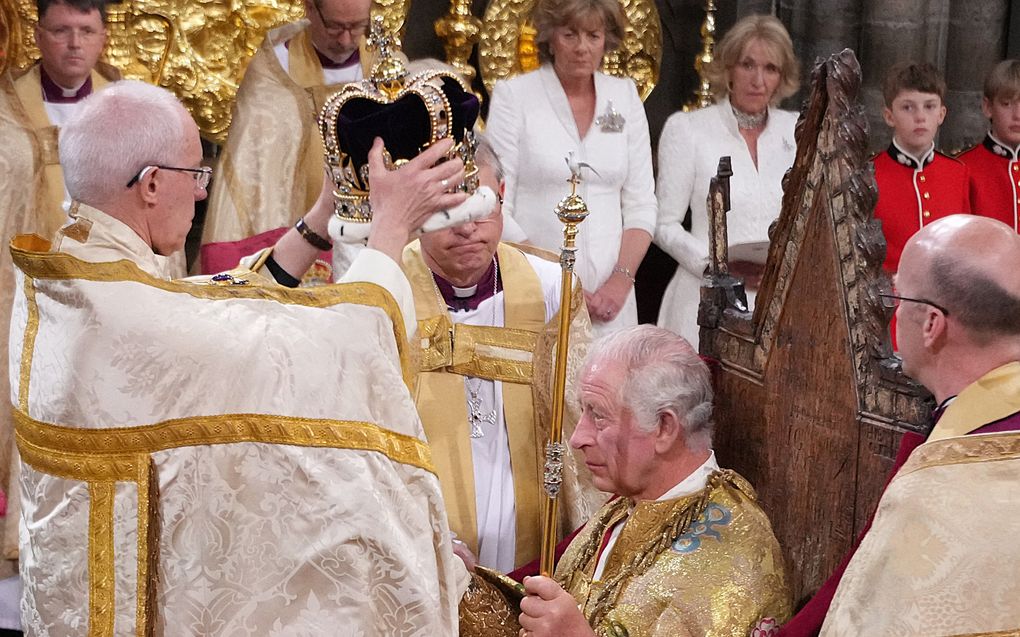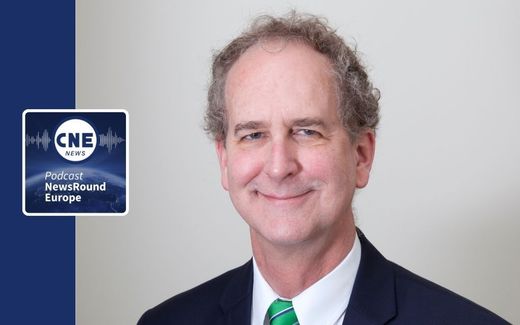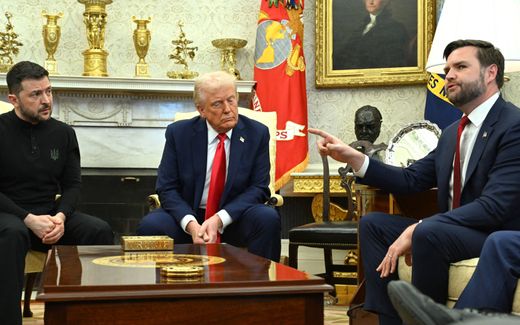Why one nation can never serve two masters

King Charles at his coronation by the Archbishop of Canterbury. Photo AFP, Victoria Jones
Opinion
US President Donald J. Trump has asserted on numerous occasions his desire to return to the sovereignty of God: “We will always be one nation under God!” Such a statement raises many eyebrows on our side of the Atlantic, even among Christians.
Stay up to date with Christian news in Europe? Sign up for CNE's newsletter.
Yet, not so long ago, this part of the world unashamedly defined itself as Christendom, the domain where Christ is king. Only since the last two centuries have most Europeans gradually come to believe that Europe could be a ‘pluralistic’ land, where several religions could coexist freely on the same territory. In our times, this is best illustrated by King Charles III’s statement that he wants to be the Defender of the Faiths (plural), rather than the traditional title of Defender of the Faith held by King Charles I of England.
The idea arose that nations could be governed based on religious neutrality. In other words, religion was no longer necessary to interpret the world.
The French law on the separation of Churches and State (famously named ‘la loi de 1905’, which introduced the French concept of laïcité) is one of the most famous examples of the approach that has recently characterised Europe. According to this law, religion is strictly kept separate from politics, and all religions are treated equally.
However, an exception was made for humanism, which regards human reason as the highest potential possible and is protected with religious zeal. Of course, many have denied that humanism is a religion. But just as Christianity professes God as supreme, humanism professes human reason or sense perception as supreme. Humanism cannot, therefore, escape being classified as a religion.
This is logical because nations cannot function without any religion. Philosophically, a government can’t adopt any law without first considering good and evil. Such a conception is always religious at its roots.
And now we have to choose: should we become “one nation under God” or a “religiously pluralistic society”?
Pluralism, i.e., the idea that all religions could cohabitate and build a nation together, cannot work because religions are totalitarian by definition, i.e., belief systems that do not tolerate being watered down by other belief systems.
As such, pluralism merely defines the problem of different entities living together in one country, but certainly does not provide any solutions because religions don’t mix. Finding common ground between all religions does not lead to a neutral society but rather to a new religion built on elements borrowed from other religions.
The massive influx of Muslim immigrants into Europe reveals both the limits of humanism and pluralism. Many Muslims have more quickly recognised the religious roots of humanism and have often been more consistent in refusing to bow the knee to its altar than many European Christians.
Consequently, the question is not whether we must return to religious sovereignty or not but rather to which religious sovereignty we should submit. The myth of neutrality is actually no more than a cover for the god that has taken control of Europe: man himself.
European Christians cannot afford to live in two camps at once. Either they bow their knee before the God of the Bible, or they bow their knee at the altar of humanism. The challenge for them is to rethink how they will live in this world, according to God’s standards.
But where to start? Recognising Jesus Christ as sovereign is one thing, but in practice, what is the key to building nations on this basis?
According to the Bible, this key is wisdom. The Bible teaches first and foremost that wisdom is a Person: Jesus Christ. He is the divine incarnation of wisdom (1 Corinthians 1:21, 28). His teachings are therefore divine revelations (Matthew 5:18). Divine wisdom presupposes that the entire Bible, Old and New Testaments, is the Word of God.
All the man-made ideologies of this world, however sophisticated they may be, can claim to be based on wisdom. However, they cannot govern this world as effectively. After all, God did not create man with unlimited wisdom. Moreover, man has been corrupted by sin since the fall of Adam and Eve.
If a man denies that God is ultimately the source of his wisdom, he must presuppose that his own wisdom is the highest. This is the common thread running through all the philosophies and ideologies of this world. In other words, the man who believes he can interpret this world without God must see himself as god.
Modern European nations are organised according to the wisdom of this world. Political ideologies such as socialism or liberalism are the fruit of thinkers whose common ground was their denial of God’s existence. Modern economic, artistic, and scientific theories are primarily based on the false idea that man can interpret this world without God’s wisdom.
The problem is that the wisdom of this world led men to nail Jesus, the very wisdom of God and Creator of this world, to the cross (1 Corinthians 1:21, 2:7-8). If this is the case, how much more will it lead our European nations to self-destruction?
Unfortunately, the myth of neutrality has led many Christians to believe that the Bible has nothing to say about politics, economics or any other sphere of society. However, Solomon understood that he could not rule over Israel without being anointed with God’s wisdom (1 Kings 3:7-9). The man who acknowledges that this is the source of wisdom knows that his personal wisdom is derived from God’s.
In the same way, European Christians cannot govern the sphere in which God has placed them without being grounded in God’s wisdom. The good news is that man can have access to this divine wisdom. James said, “If any of you lacks wisdom, let him ask God, who gives to all generously and without reproach, and it will be given to him” (cf. James 1:5).
Related Articles











